Healthcare providers opt for automated marketing solutions primarily because these systems give them a competitive edge. Besides allowing them to reach a wider audience, automation solutions offer a cost-efficient way to launch marketing campaigns. Imagine reaching more patients in a fraction of the time and effort it would take for manual methods.
Still, compliance with regulatory standards like HIPAA or the Health Insurance Portability and Accountability Act is a must. Not only does this ensure safe PHI handling, but it also helps improve the way your organization runs your marketing campaigns.
Top 5 HIPAA-Compliant Marketing Automation Platforms:
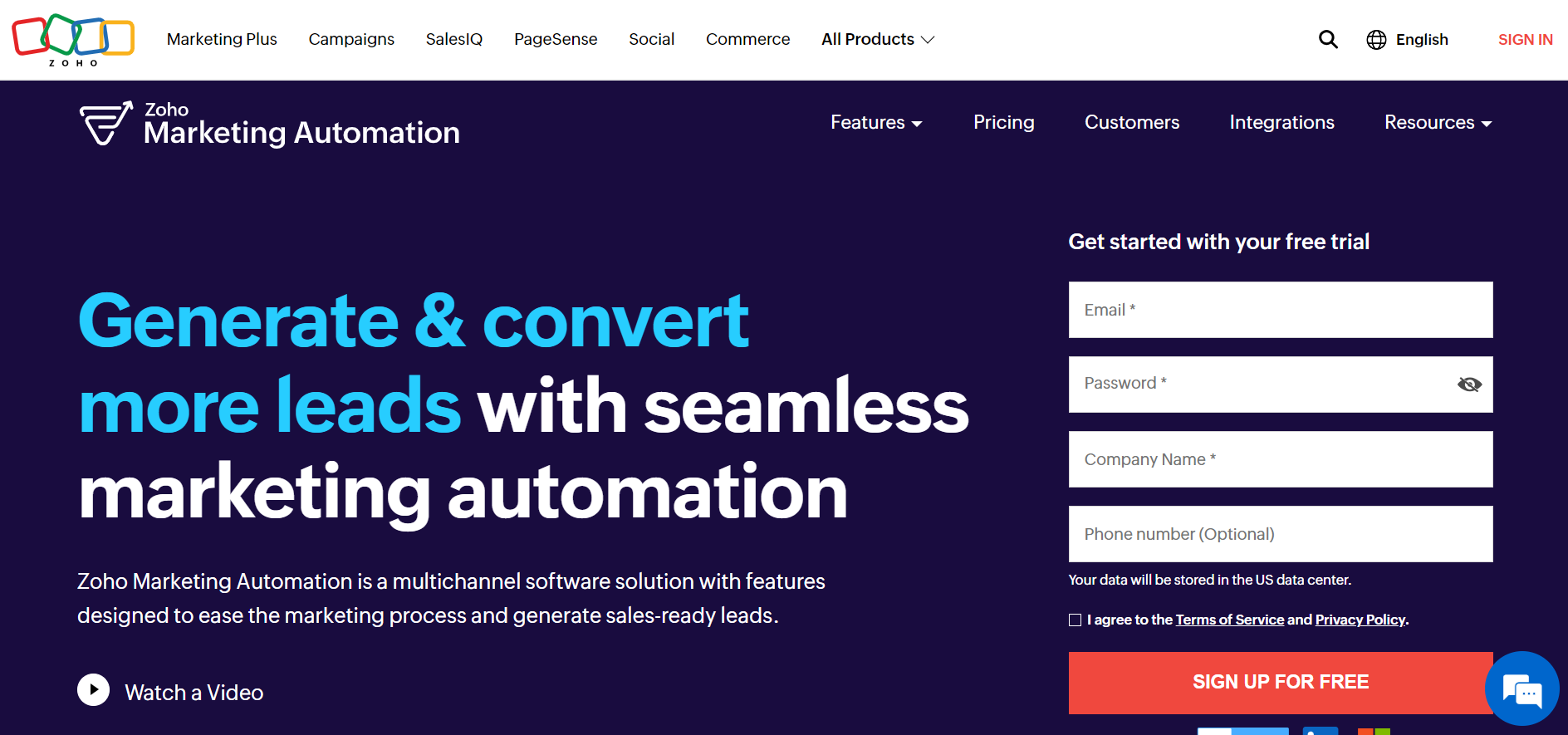
1. Zoho
Zoho Marketing Automation provides features and controls for HIPAA compliance. The platform also provides a BAA, which you can request through email. With Zoho, you can identify and label custom fields containing electronic PHI, restrict data access and export, and view audit trails.
Features:
- Lead generation, nurturing, and qualification
- Behavior marketing
- Customer journeys
- Advanced web analytics
- Multichannel marketing
- Marketing planner
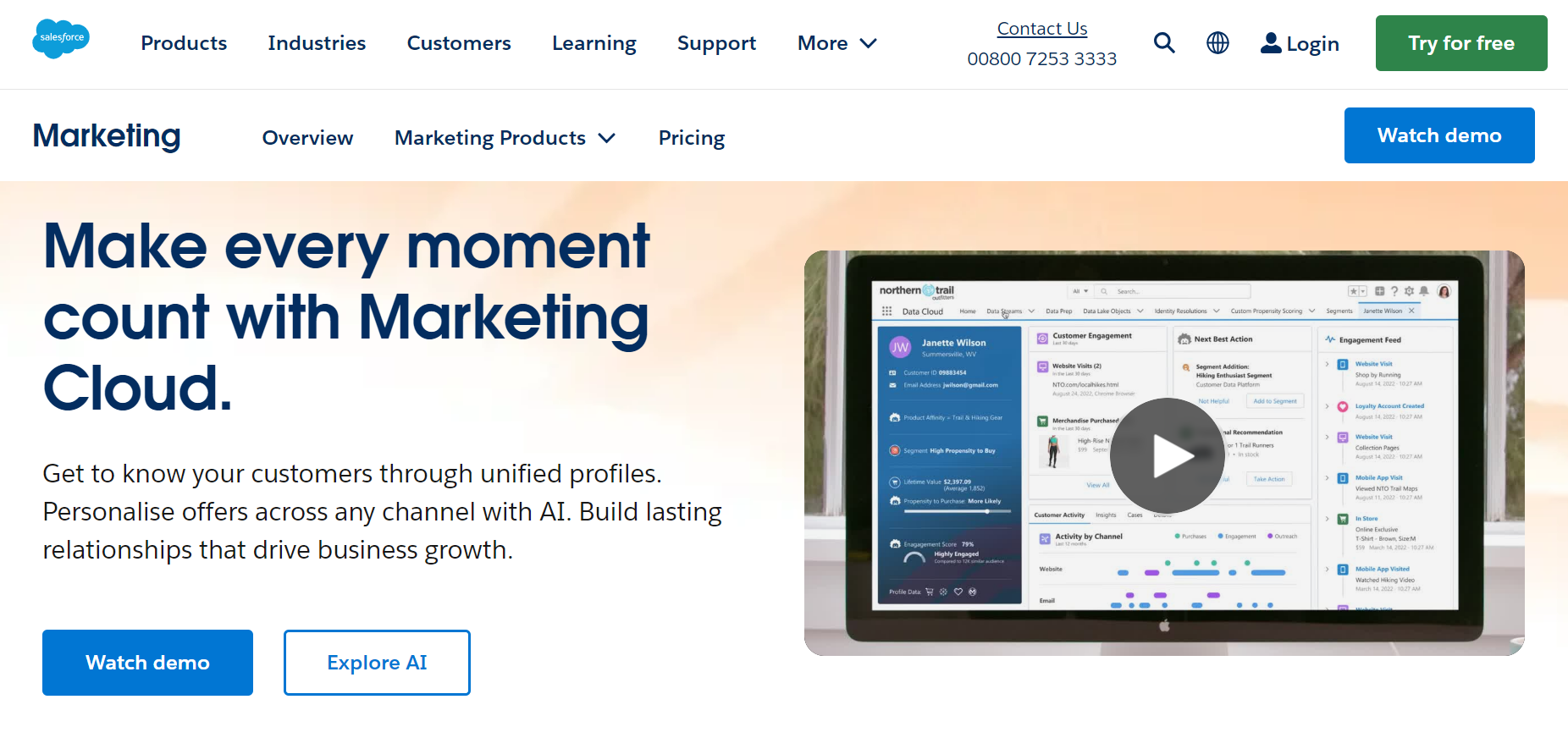
2. Salesforce Marketing Cloud
A comprehensive marketing platform, Salesforce is designed for marketers to create, automate, and analyze their marketing efforts across different channels. Like Zoho, Salesforce complies with HIPAA laws and provides a BAA. Contact your account representative to get a copy of the document. Take note of the Salesforce BAA restrictions before signing the document.
Features:
- Einstein AI for identifying qualified leads
- Marketing Analytics
- Drag and drop landing page builders
- Multichannel marketing
- Real-time sales alerts
- Account-based marketing dashboard
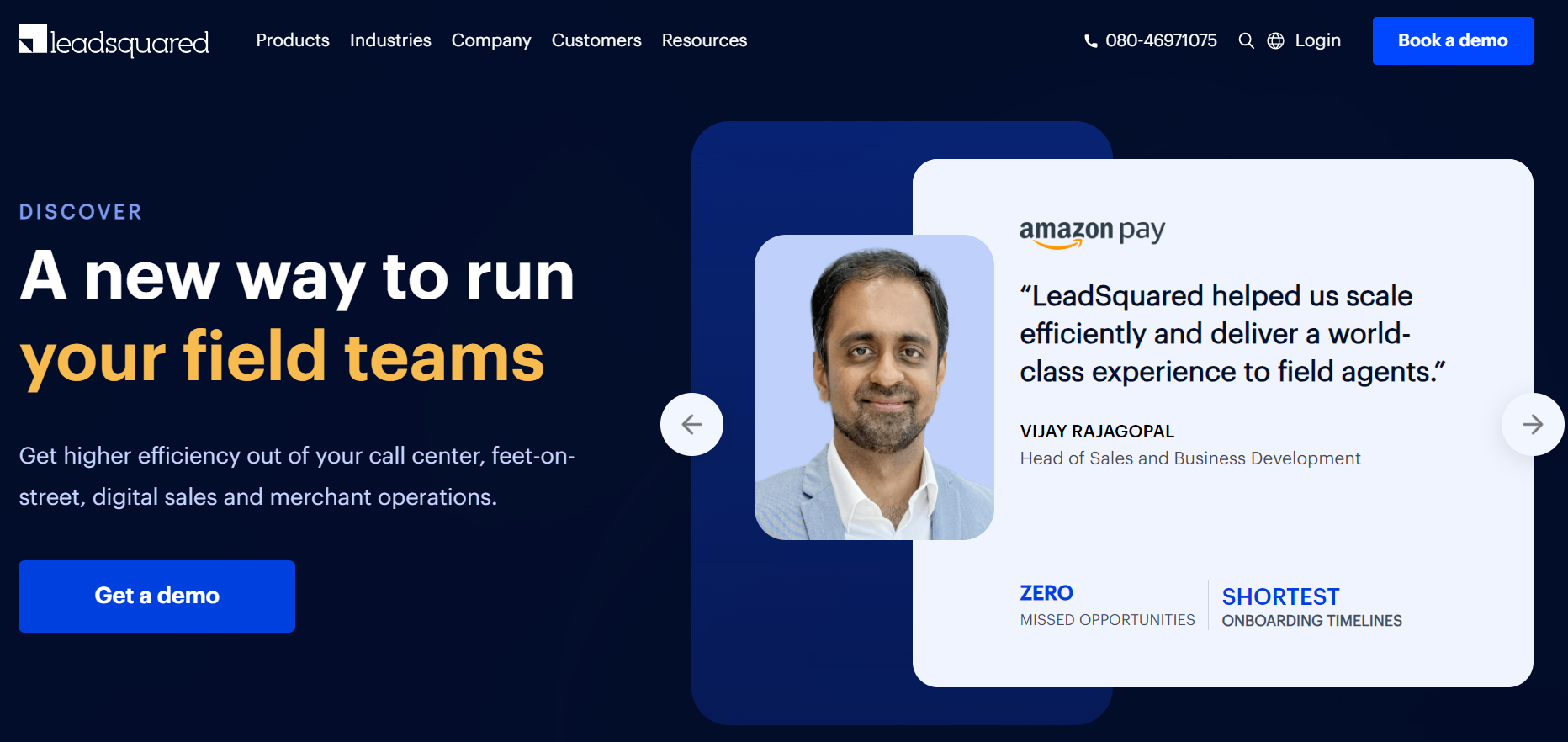
3. LeadSquared
LeadSquared isn’t as popular as Zoho and Salesforce. However, it has steadily amassed a good reputation for being a customizable marketing automation tool for HIPAA compliance. Reviewers attest to smooth migration, hassle-free experience, and flexible platform. It also offers a BAA to maintain the security of PHI.
Features:
- Integrates with EHRs like Epic, AthenaHealth, DrChrono, and more
- Custom appointment forms
- Email and landing page templates
- Segregate leads based on demographics
- Trigger communication via email, text, and patient portals
- Share quizzes and health surveys
- SMS, Google, email, and Facebook campaigns
- Custom automation via APIs
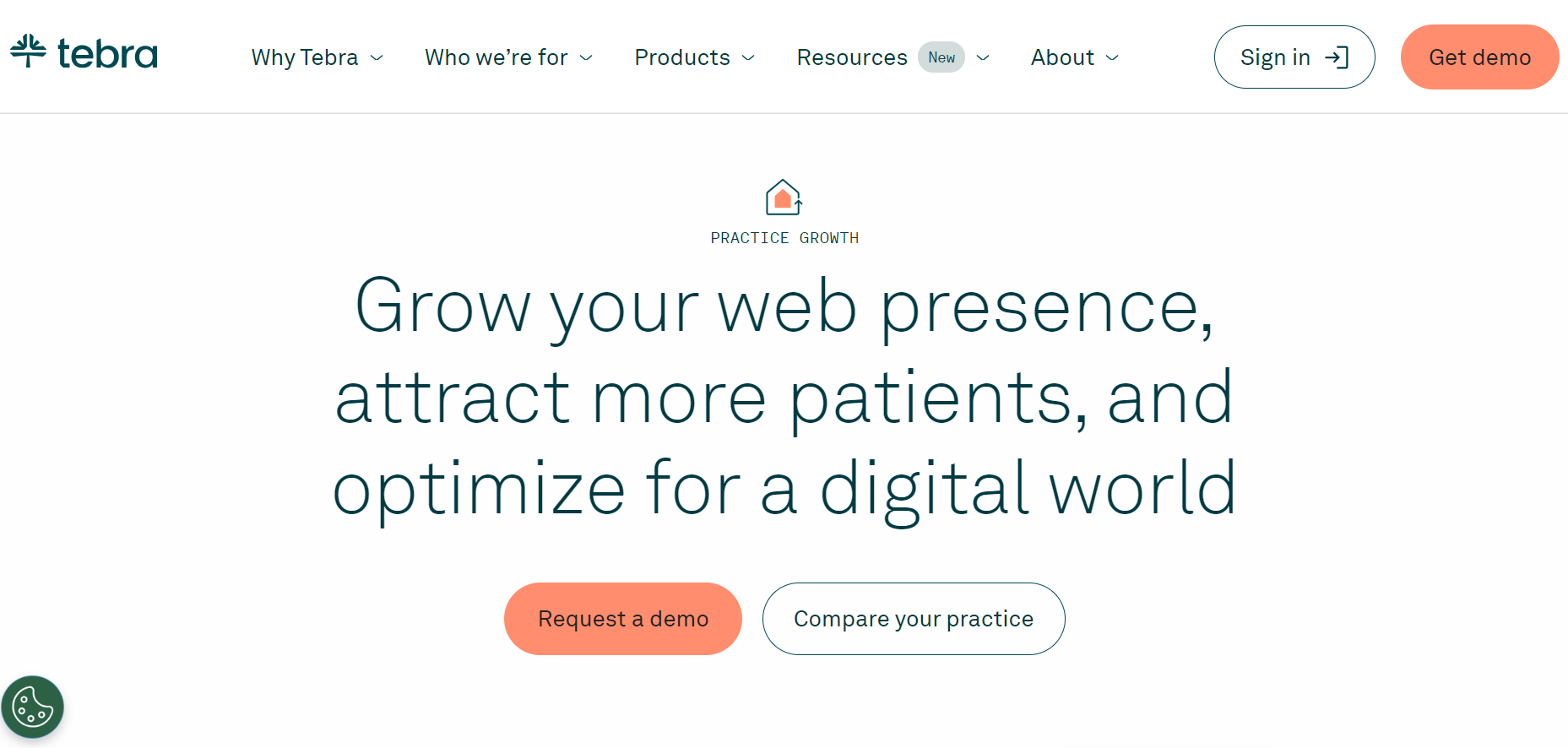
4. Tebra
In 2021, PatientPop, a marketing and practice management platform, merged with Kareo, a clinical and financial software, to form Tebra. This merger led to a comprehensive healthcare tool, so you don’t need to subscribe to other services. The expanded platform lets you grow your practice while adhering to HIPAA standards.
Features:
- Web-to-text, call-to-text, and two-way text messaging
- PatientPop mobile app
- Practice websites
- Search Engine Marketing
- Reputation Management
- Advertising and social media
- Practice Management and billing tools
- HIPAA-compliant telehealth
- API integration
- Patient Portal
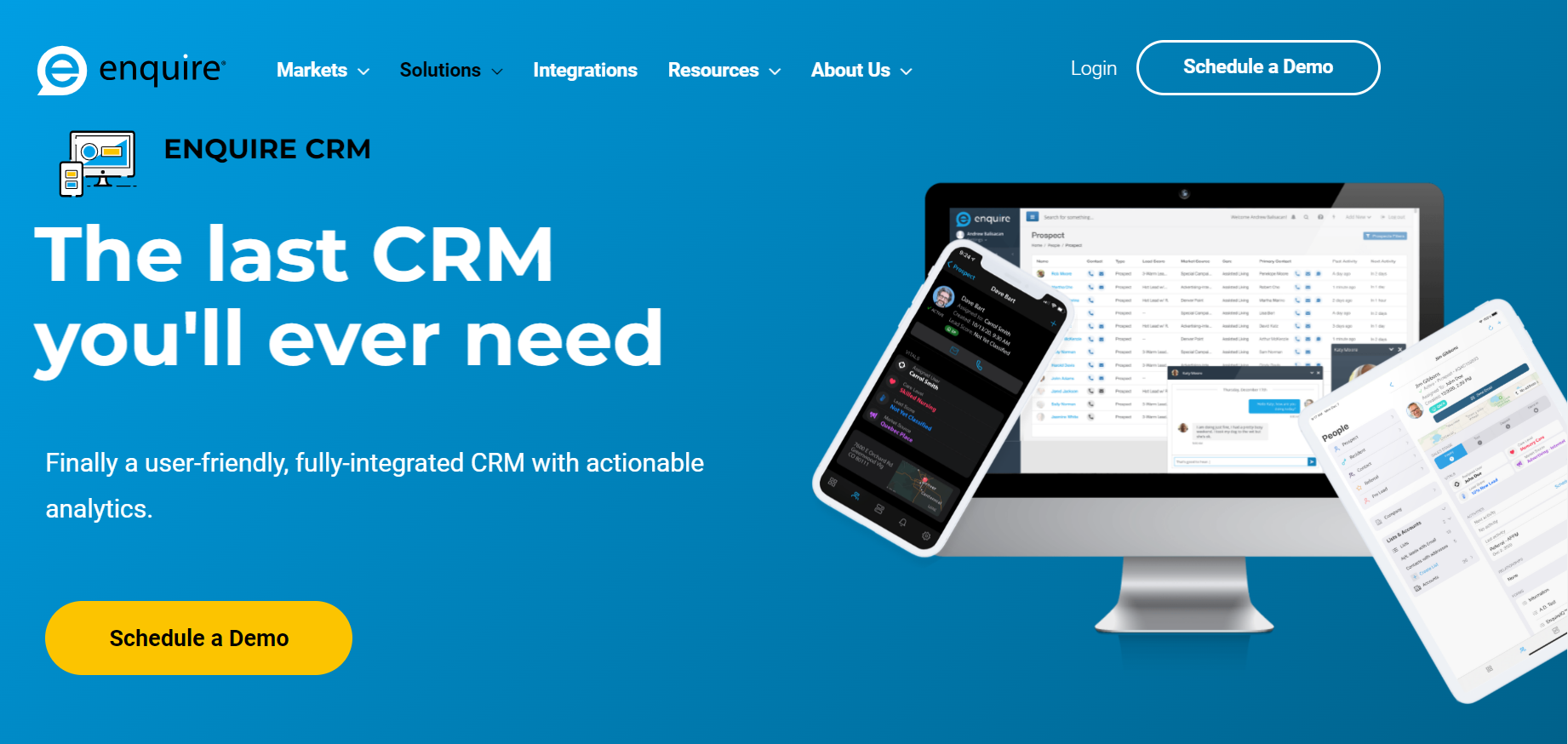
5. Enquire CRM
Specifically designed for senior and post-acute care, Enquire is a customer management and marketing automation platform for HIPAA compliance. With it, you can improve sales and increase productivity while ensuring customer data remains private and secure.
Features:
- Customizable newsletters, events, and social media marketing campaigns
- Phone number tracking for call analysis and reports
- Manage contacts by accounts, prospects, referrals, residents, and patients
- Customizable website link integrated with Google Calendar, Office 365, and GoToMeeting
- Website popup forms and customized web forms
- Automated and custom sales and marketing reports
- Full-featured mobile app
Key Features of HIPAA-Compliant Marketing Automation Tools
Using HIPAA-compliant platforms is vital to secure customer data and ensure that your practice follows federal law. Here are the essential features to look at if you prioritize HIPAA compliance for your automated marketing tasks:
Business Associate Agreement
HIPAA law requires a business associate agreement between covered entities and their business associates. Software vendors that transmit, store, and manage electronic PHI are considered business associates and should be able to sign a BAA with you. The BAA outlines both parties’ responsibilities in protecting PHI.
Secure APIs
If the platform integrates with other software or apps, it should be able to ensure that the exchange happens securely. You should also check the HIPAA compliance of other apps it integrates with before using the integration.
Secure hosting and storage
HIPAA-compliant marketing automation platforms host and store data in secure systems. You might come across software that uses web hosting solutions like Amazon Web Services, which is also HIPAA-compliant.
Data backups and disaster recovery
In cases of system failure, cyberattacks, natural disasters, and other security incidents, data should remain accessible and available. A comprehensive disaster recovery plan for your practices should include using software that ensures PHI is not lost or compromised in the event of unforeseen incidents.
The Challenge of Marketing Automation in Healthcare
Data privacy concerns are the main challenge in using marketing automation software in medical settings. In 2022, Class Action reported that a woman from California filed a proposed class action against UCSF Medical Center and Dignity Health Medical Foundation for the unauthorized use of a Meta (Facebook) tracking pixel on patient portal websites. The woman claims that Meta uses patient’s data for profit, sending targeted related to medical conditions on Facebook, email, and text. This incident shows that using HIPAA-compliant marketing automation software is a must to protect patient privacy, gain customer trust, and avoid legal consequences.







